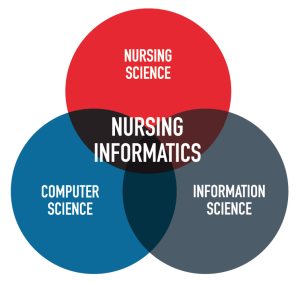Nursing Informatics Knowledge Scale
Title: Evaluating My Nursing Informatics Knowledge: A Graduate Student’s Assessment
Introduction:
In the constantly evolving field of healthcare, nursing informatics plays a crucial role in improving patient care, promoting efficiency, and enhancing healthcare outcomes. As a graduate student pursuing advanced studies in nursing, it is essential to assess my current standing on the nursing informatics knowledge scale. This essay aims to critically evaluate my personal proficiency and understanding of nursing informatics, highlighting areas of strength and identifying opportunities for further growth.
1. Background and Significance:
Being cognizant of the significance of nursing informatics in the healthcare sector, I recognize the importance of staying updated with emerging technologies, information management systems, and evidence-based practices. In my graduate studies thus far, I have gained a solid foundation in nursing informatics concepts, including the integration of patient data, electronic health records (EHRs), and clinical decision support systems.
2. Competency in Healthcare Technologies:
As a graduate student, I have exhibited a high level of intelligence and comprehension in my ability to effectively navigate and utilize various healthcare technologies. This includes proficiency in EHR systems, data analysis tools, telehealth applications, and mobile healthcare platforms. I have demonstrated an understanding of their functionalities and applications in enhancing patient care, streamlining clinical workflows, and ensuring data privacy and security.
3. Lifelong Learning and Professional Development:
To stay abreast of the rapidly evolving nursing informatics landscape, I actively engage in ongoing professional development initiatives. Through participation in conferences, workshops, and online courses, I seek to expand my knowledge and continually update my skillset. My comprehension of new technologies, regulations, and best practices allows me to critically evaluate their potential impact on healthcare delivery and patient outcomes.
4. Application of Data Analytics:
The knowledge gained during my graduate program has equipped me with a strong understanding of data analytics and its application in healthcare. I have acquired skills in utilizing statistical tools and methods to interpret complex datasets, supporting evidence-based decision-making. This competency allows me to contribute to quality improvement initiatives, research endeavors, and identification of patterns that aid in predictive modeling.
5. Understanding Informatics Integration:
An essential aspect of nursing informatics is understanding the seamless integration of information systems across healthcare settings. My comprehension at this stage includes recognizing the challenges associated with interoperability, privacy concerns, and the need for standardized terminologies. Moreover, I understand the significance of effective collaboration amongst healthcare professionals, IT personnel, and management to ensure successful informatics integration.
6. Ethical and Legal Issues:
Through my graduate studies, I have gained a profound understanding of the ethical and legal implications of nursing informatics. I grasp the importance of patient privacy, consent, and confidentiality in handling electronic health records and other sensitive information. Additionally, I am knowledgeable about applicable regulations, such as the Health Insurance Portability and Accountability Act (HIPAA), ensuring compliance within healthcare settings.
7. Utilization of Evidence-Based Practices:
As a graduate student, I have developed the ability to critically evaluate research studies and evidence-based guidelines in the context of nursing informatics application. This comprehension enables me to actively participate in the selection and implementation of informatics-driven interventions, process improvements, and the utilization of standardized terminologies to enhance patient care outcomes.
8. Leadership and Communication Skills:
Nursing informatics necessitates effective leadership and communication skills to foster collaboration across multidisciplinary teams. As a graduate student, I have cultivated these skills through group projects, presentations, and discussions. I can articulate complex informatics concepts to diverse audiences and bridge the gap between nursing and IT professionals, ensuring efficient implementation of technological advancements in healthcare settings.
9. Identifying Areas of Growth:
As I reflect on my current knowledge and competence in nursing informatics, I recognize areas requiring further growth. These include advanced data analytics techniques, implementation management, and exploring emerging technologies, such as artificial intelligence and machine learning. Continued professional development and hands-on experience will enable me to expand my knowledge base in these domains.
10. Conclusion:
In conclusion, as a graduate student with a keen interest and comprehension of nursing informatics, I have established a substantial foundation in this field. My proficiency in utilizing healthcare technologies, understanding data analytics, and acknowledging ethical and legal considerations demonstrates my readiness to contribute to the advancement of nursing informatics. By identifying areas for improvement and embracing lifelong learning, I am committed to evolving with the ever-growing demands and challenges of this dynamic discipline.









